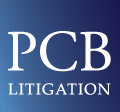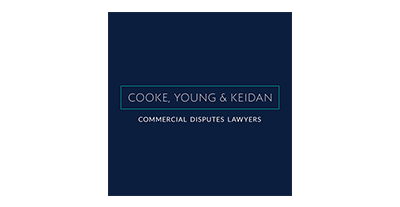Knowledge Hub
Join the Conversation!
Impartial and independent, ThoughtLeaders4 Disputes Knowledge Hub hosts cutting edge industry content and insight.
Email maddi@thoughtleaders4.com to submit content.
Supreme Court places limits on SFO’s extraterritorial reach: R (on the application of KBR, Inc) (Appellant) v Director of the Serious Fraud Office (Respondent) [2021] UKSC 2
Date: 04/03/2021 Type: Articles Topic: Disputes |Introduction
On 5 February 2021, the Supreme Court, in a unanimous decision, held that section 2(3) of the Criminal Justice Act 1987 (“the 1987 Act”) does not confer a unilateral power on the Serious Fraud Office (“the SFO”) to demand documents from overseas entities under the threat of criminal sanction, and the request for evidence should have been handled through international mutual legal assistance channels. The Supreme Court confirmed that in applying the rules of statutory interpretation, the UK Parliament could not have intended for the SFO to use Section 2(3) notices extraterritorially and a test based on "sufficient connection" had no basis in the 1987 Act.
Background
The appellant, KBR Inc, is a global provider of comprehensive solutions for aerospace and defence, energy and chemicals, intelligence and data science, and federal and civilian markets. It is incorporated in the USA and does not have a fixed place of business in the UK. Although it has never carried on business in the UK, it has UK subsidiaries, including Kellogg Brown and Root Ltd (“KBR UK”).
On 4 April 2017, the SFO issued a notice under section 2(3) of the 1987 Act to KBR UK, as part of a wider investigation into the activities of Unaoil. These investigations follow media reports that the company allegedly facilitated corruption and bribery in the oil industry. KBR UK provided various documents to the SFO in response, but made it clear that some of the requested material was held by KBR, Inc in the USA, if and to the extent it existed. On 25 July 2017, the SFO issued a further notice under section 2(3) (“the July notice”). The July notice contained multiple requirements for the production of material held by KBR, Inc outside the UK.
Section 2 notices under the 1987 Act are a powerful weapon in the hands of the SFO. Under section 2(3) of 1987 Act, the Director of the SFO has the power to issue a notice requiring persons to produce documents and other information for the purposes of an SFO investigation into serious or complex fraud. A failure to comply with a section 2 notice without reasonable excuse is an offence punishable with up to six months imprisonment.
Sufficient connection test
The issue in this appeal was whether the SFO could use the power in section 2(3) to compel a foreign company to produce documents it holds outside the UK. KBR, Inc applied for judicial review to quash the July notice. It argued that the July notice was ultra vires because section 2(3) of the 1987 Act does not permit the SFO to require a company incorporated in the USA to produce documents it holds outside the UK. The High Court refused KBR, Inc’s application in a judgment on 6 September 2019. It held that section 2(3) extended extra-territorially to foreign companies in respect of documents held outside the UK if there was a “sufficient connection” between the company and the UK. On the facts, there was a sufficient connection between KBR, Inc and the UK, so the High Court held that the July notice was valid. The High Court had considered that on the evidence, it was impossible to distance KBR, Inc from the transactions central to the SFO’s investigation of KBR UK and accordingly, KBR, Inc’s own actions created a sufficient connection between it and the UK. The Supreme Court dismissed the notion that a sufficient connection test could be implied into the 1987 Act. The Court held that there was no basis for this finding as implying a sufficient connection test into section 2(3) interprets the provision too widely, is inconsistent with the intention of Parliament and would involve illegitimately re-writing the statute. This would lead to an undefined principle that is inherently uncertain [64-65].
Court’s decision: presumption against extraterritorial effect
Lord Lloyd-Jones gave the judgment, with which all members of the Court agreed. The Court held that when construing section 2(3) of the 1987 Act, the starting point is the presumption that UK legislation is generally not intended to have extra-territorial effect [21-22]. The presumption against extra-territorial effect was found to clearly apply in this case because KBR, Inc is not a UK company, and has never had a registered office or carried on business in the UK [26].
The Court held that when Parliament intends legislation to have extra-territorial effect, it often makes this clear by including express wording in the statutory provisions, which is absent from section 2(3). The other provisions of the 1987 Act do not provide any clear indication either for or against the extraterritorial effect of section 2(3) [29]. The fact that the SFO could use section 2(3) to compel a UK company to produce documents it holds overseas does not cast any light on whether the legislation can be used against a non-UK company in the very different circumstances of the present case [30].
The SFO submitted that the extra-territorial effect of section 2(3) must be implied because its purpose (to facilitate the investigation of serious fraud, which often has an international dimension) could not otherwise be effectually achieved [31]. The SFO’s position was that the words used in Section 2(3) of the Act were deliberately wide and conferred power exercisable against “the person under investigation” or “any other person” and could relate to the production of “any specified documents” provided that the documents related to “any matter relevant to [an] investigation.”
However, the legislative history indicates that Parliament intended that evidence of fraud should be obtained from abroad by establishing reciprocal arrangements (mutual legal assistance) for co-operation with other countries [33-39]. These systems are subject to protections and safeguards, and are fundamental to the mutual respect between States and comity on which the system is founded. Lord Lloyd- Jones stated that he considered it to be “inherently improbable that Parliament should have refined this machinery as it did, while intending to leave in place a parallel system for obtaining evidence from abroad which could operate on the unilateral demand of the SFO, without any recourse to the courts of authorities of the State where the evidence as located without the protection of any of the safeguards put in place under the scheme of mutual legal assistance” [40-45].
In Serious Organised Crime Agency v Perry [2012] UKSC 35, the Supreme Court held that section 357 of the Proceeds of Crime Act 2002 did not permit a disclosure order to be imposed on persons outside the UK. This supports the view that section 2(3) of the 1987 Act was also not intended to have extra-territorial effect, because there are close similarities between section 357 and section 2(3) [47-56].
Practical Implications
This is undoubtedly a landmark ruling in section 2 cases. Given the cross-border nature of a large majority of the SFO’s investigations, this decision poses challenges to its ability to secure information relevant to its multi-jurisdictional cases. The SFO (as like other enforcement agencies such as the FCA and NCA) already face a compounding issue with regards to requests for investigative assistance and the transfer of evidence from EU member states because of Brexit. While the option of legislative change to overcome these impediments may very well be on the table, the process is likely to be marred with its own challenges. In the short term, it seems that a process of formal information sharing and relying on the assistance of foreign regulators may be the go to option for the SFO.
The Supreme Court has provided clarity and certainty for companies as to when and how they must comply with SFO investigations. Foreign companies that hold documents overseas will not receive a section 2(3) notice if one of their UK-based group entities becomes subject to an SFO investigation. However, the judgment does not limit the SFO’s ability to seek evidence that is held by a UK entity outside the UK, and it is unclear whether the SFO can obtain evidence with respect to a non-UK entity carrying on business in the UK.
This decision is likely to raise questions as to whether the SFO can rely on overseas evidence in current investigations involving non-UK entities. However, most foreign companies issued with a section 2(3) notice will still be incentivised to comply and provide to the SFO documents that are held overseas by non-UK entities, particularly if they are seeking leniency from the SFO in the form of a deferred prosecution agreement. There are also public interest arguments in favour of engaging in co-operative conduct.
The introduction of Overseas Production Orders (“the OPOs”) facilitated by the Crime (Overseas Production Orders) Act 2019 (“the COPO”) could potentially widen the scope of overseas materials that the SFO may seek from foreign individuals and companies under investigation. In its current form, the OPOs empower enforcement agencies to compel disclosure of electronic data from any person in the country or who has a designated international cooperation agreement with the UK. The OPO would be served directly on the foreign company that holds the data, without relying on the applicable mutual legal assistance treaty. To date, the UK has signed only one such agreement, with the US. This agreement is not yet fully operational, as the US has not passed all of the requisite reciprocal domestic legislation.
For access to the full text of the judgment click here.
Author
Priyanka Kapoor, Partner and Clara Browne, Associate - PCB Litigation LLP
Our Disputes Corporate Partners





















